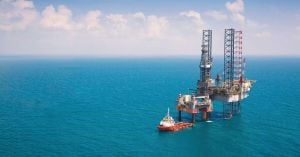Former German Chancellor Angela Merkel has recently made headlines with the release of her memoir, "Freedom," which provides insights and reflections on her time as one of Europe's most influential leaders. Over her 16-year tenure, Merkel navigated Germany and Europe through significant challenges, including the financial crisis, the migrant crisis, and the aggressive maneuvers of Russia under Vladimir Putin.
Merkel's memoir does not shy away from her controversial decisions, particularly her approach to Russia and Ukraine. Throughout the book and subsequent interviews, she emphasizes her belief, firmly stated, "that the war in Ukraine would have started sooner and likely been worse" if she had allowed Ukraine's membership in NATO during her time as chancellor. She argues persuasively, "We would have seen military conflict even earlier. It was abundantly clear to me"—suggesting her strategic choices were made with foresight concerning Russia's aggressive posture.
These reflections are particularly poignant as they arrive shortly after Russia's full-scale invasion of Ukraine, which occurred just months after Merkel stepped down from office. Critics, including current Ukrainian President Volodymyr Zelensky, have termed Merkel's NATO decision as "a clear miscalculation"—highlighting the complex web of international relations and the repercussions of pivotal decisions made years earlier.
Merkel’s chapter on her relationship with Putin is especially telling. She describes their two-decade-long acquaintance, recalling how they negotiated challenges but also how she struggled to understand his ambitions. "I realized my assumption about him being 'someone completely normal' was misplaced," she noted, reflecting her surprise at Putin's unconventional approach to diplomacy. She passionately defends her ties to the Russian leader, asserting her strategy aimed at maintaining peace and stability across Europe.
At the core of Merkel’s narrative lies her rationale for Germany’s energy policy, which saw the country grow increasingly dependent on Russian gas. She states, "The gas deals I made with Russia were meant to help German firms and keep the peace with Moscow." This dependency, alongside the construction of the Nord Stream 2 pipeline, is seen by many as having fundamentally altered the geopolitical dynamics of Europe.
Despite her optimism about diplomatic relations, evidence suggests these ties also empowered Russia's aggressive policies. Merkel admits to her reliance on diplomacy with Putin, stating, "I tried to curb Russian attacks on Ukraine through negotiations, which—admittedly—ultimately failed." This statement encourages readers to reconsider the effectiveness of her policies and whether they served the interests of Germany or Europe adequately.
The memoir also explores her experience with the 2015 migrant crisis, described as perhaps the defining moment of her leadership. Merkel's decision to allow over one million asylum seekers to enter Germany received significant praise but has also faced backlash, culminating in the rise of the Alternative for Germany (AfD), a far-right political party. Some critics suggest her open-door policy has significantly transformed the political climate of Germany, leading to polarization and social unrest.
These reflections illuminate Merkel’s complicated legacy. She acknowledged past mistakes but mostly cited minor tactical errors instead of the broader strategic misjudgments critics accuse her of having made. This has left some wondering if her book truly encapsulates the era’s lessons or merely serves to bolster her image.
Merkel's philosophical approach resonates throughout "Freedom." She often echoed sentiments akin to her diplomatic stance: "never explain, never complain." This somewhat restrained perspective recalls the British royal family's own approach to public relations. It leaves readers contemplating whether such restraint is noble or indicative of political evasion.
Germany's shift away from reliance on Russian energy has begun, spurred on by the crises enveloping Europe. Since her departure from the chancellorship, the country has had to scout for alternative energy sources, resulting in increased costs and challenges. This pivot reflects the changing geopolitical realities and the urgency of reassessing past choices.
Currently, the narrative of Merkel’s political life challenges readers to evaluate her efficacy as Germany’s leader. Can good intentions always translate effectively when wielding significant power, or does the complexity of international diplomacy often blur the lines between wise decisions and historical miscalculations?
Merkel’s reflections pose fundamental questions about leadership and crisis management. Her insights compel one to wonder at what point diplomatic relations cross the threshold from peacekeeping to appeasement. While some may applaud her careful diplomacy, others lament the strategic foresight inadequacies observed with regard to Moscow over the years.
By presenting her story, Merkel tempers criticism with her narrative of stability over periods of tumult. Whether this memoir changes public perception of her leadership remains debatable, but it undoubtedly provides fertile ground for discussion on the intricacies of political leadership and the long-lasting impacts of diplomatic choices.
Merkel concludes her reflections with acknowledgments of challenges faced during her term, setting the stage for debate about historical legacies, policy decisions, and their ramifications across generations. "Freedom" captures the essence of Merkel’s complex political legacy, providing both supporters and critics with points of contention and admiration alike.
While many may disagree with her assessments or decisions, Merkel's story remains pivotal as Europe grapples with the results of past policies and strives to forge paths forward amid unprecedented challenges. Her memoir does not aim merely to defend but also invites reform—challenging future leaders to learn from both her successes and her stumbles.



